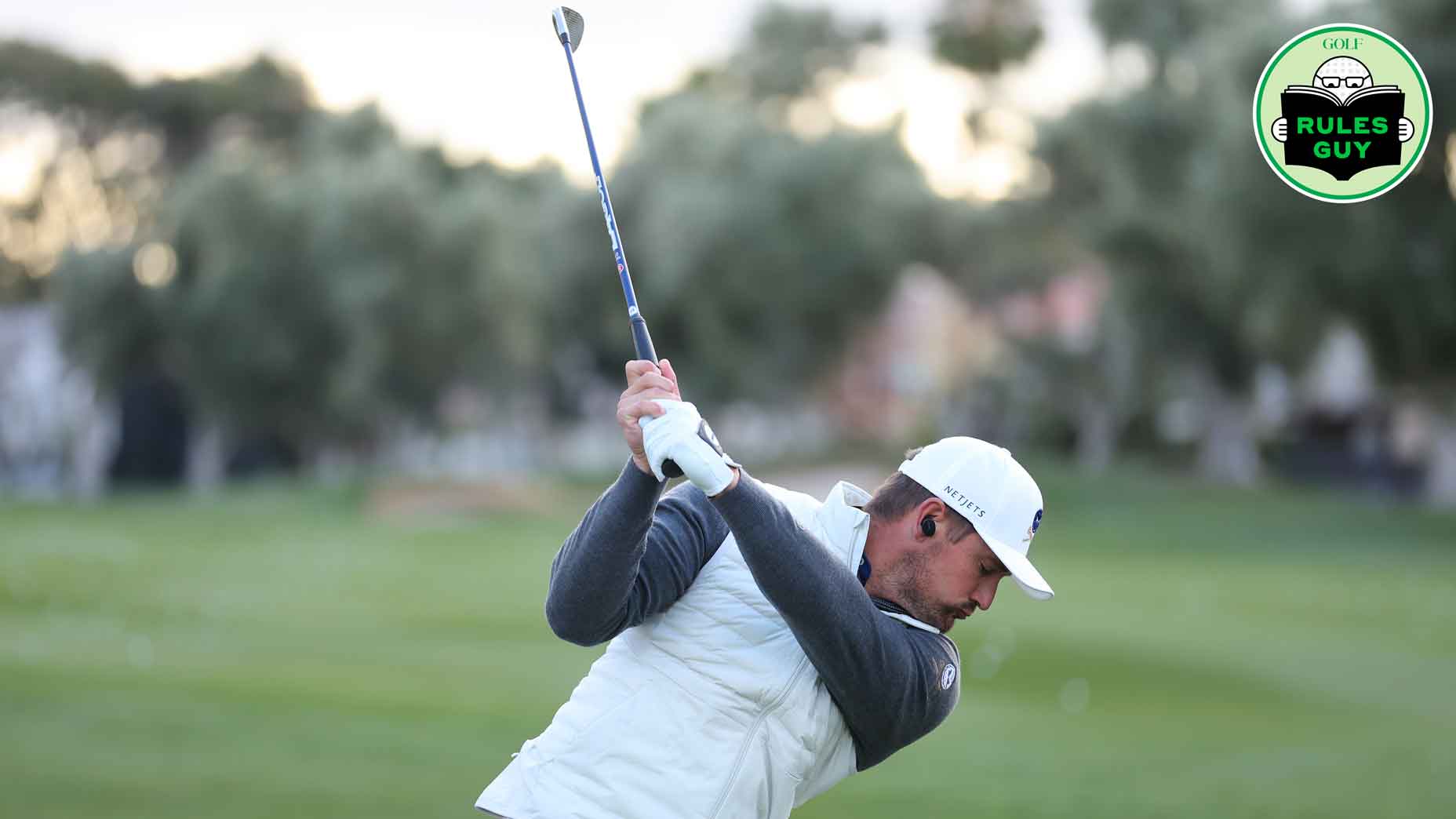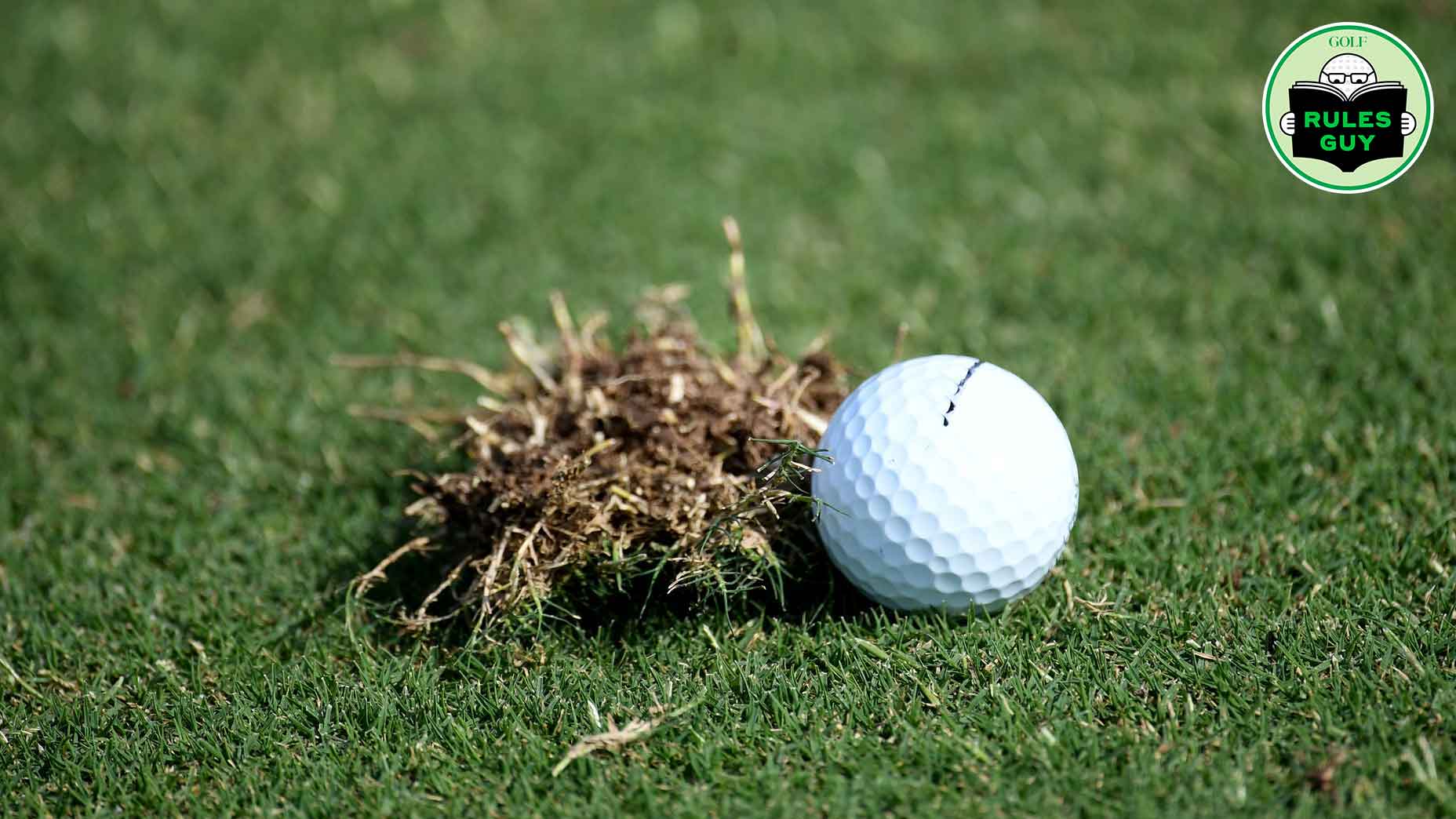 Rules Guy: Can you test out a potential ricochet shot before actually hitting it?
Rules Guy: Can you test out a potential ricochet shot before actually hitting it?
Patrick Reed said he didn’t intend to break the rules. Here’s why that matters
Everyone, it seems, has a read on Patrick Reed.
But has everyone read the rule?
With a Twitter storm still swirling over Friday’s rules kerfuffle at the Hero World Challenge, where Reed was assessed a two-shot penalty after moving sand behind his ball in a waste area during multiple practice swings, there appears to be some lingering confusion among some observers as to what Reed did and did not do wrong.
So let’s review the relevant letter of the law.
The brouhaha began after Reed’s drive on the par-5 11th hole at Albany found a sandy waste area left of the fairway. As Reed prepared to hit his second shot, cameras showed him taking two practice swings during which he swept sand away from behind his ball.
Under the Rules of Golf, taking a practice swing in a sandy waste area is allowed (the same is not true in sand bunkers, where practice swings are a no-no). But simply taking practice swings is not what got Reed into trouble.
ICYMI Patrick Reed was hit with a two-stroke penalty for moving sand behind his ball on two practice swings in a bunker at the Hero. pic.twitter.com/OGLjwZrYTo
— GOLF.com (@GOLF_com) December 7, 2019
ADVERTISEMENT
What landed Reed in a rules pickle — and Golf Twitter’s crosshairs — was that in the course of taking his practice swings, he was deemed to have improved his intended line of play, which is forbidden no matter where your ball is sitting.
Specifically, Reed fell afoul of Rule 8.1, which prohibits players from taking certain actions if they “improve the conditions affecting the stroke,” including removing or pressing down sand or loose soil.
Some commentators have gone so far as to call Reed a “cheat.” Some players, too. (“I know Pat pretty good and he’s always been nice to me, so I don’t want to say anything bad about him,” said Australian President Cupper Cameron Smith. “But anyone [who’s] cheating the rules, I’m not up for that.”) But, at the risk of getting bogged down in semantics, cheating implies that he was willfully trying to get around the rules.
That gets to intent, and as PGA Tour rule official Slugger White made clear in penalizing Reed, intent had nothing to do with Reed’s transgression. Reed, for his part, acknowledged that he committed a violation but said that it was unintended.
What was really in his heart?
That matter seems destined for a drawn out debate in the loud, unruly court of public opinion.
But as for questions involving the Rules of Golf — in this case, they have already been resolved.
ADVERTISEMENT





